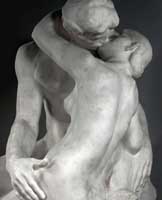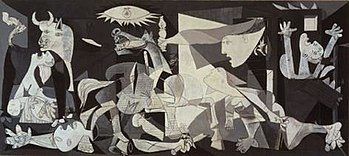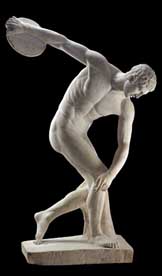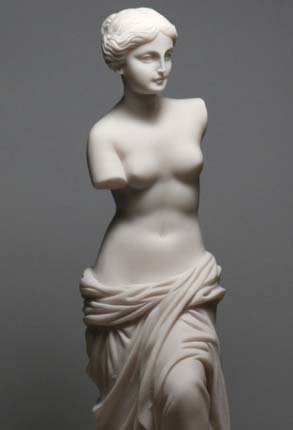
"O, how much more doth beauty beauteous seem
By that sweet ornament which truth doth give!"
William Shakespeare
and Beauty
How to keep - is there any any, is there
none such, nowhere
known some, bow or brooch or braid or brace, lace, latch or
catch or key to keep
Back beauty, keep it, beauty, beauty, beauty,...
from vanishing
away? - Gerard Manley Hopkins
The relationship between truth and beauty was first discovered by the ancient
Greeks, who spoke about things like "a healthy mind in a healthy
body" and devised a mathematical formula for visual beauty, the
golden mean, at the same time as they invented philosophy,
a highly disciplined method in pursuit of ultimate, absolute truth, regardless
of all other considerations.
was first discovered by the ancient
Greeks, who spoke about things like "a healthy mind in a healthy
body" and devised a mathematical formula for visual beauty, the
golden mean, at the same time as they invented philosophy,
a highly disciplined method in pursuit of ultimate, absolute truth, regardless
of all other considerations.
Most cultures in today's world recognise the importance of truth, including, for example, that of the British or various Anglo-Saxon post-colonial nations, or at least they pay lip-service to truth, and most humans as individuals hate lies, especially being lied to. But not in the same way as the Greeks, not 'regardless of other considerations.' Some take the view that we cannot always know absolute truth, so we might as well take a more practical approach, or not bother at all. Worse still, as in legal practice, the truth may be evident clearly but judges feel entitled to let prejudice, fear or personal taste override the facts, a common enough phenomenon.
This is very costly to the individual or to the culture itself and leads to anything from miscarriages of justice in the courts, to the slave trade, to pointless wars and corrupt systems of government.
Without truth - and there is only one kind, absolute truth - we cannot function as individuals alongside others, nor as a society. Without truth, nothing can be trusted and therefore no action can be taken. Even lying to ourselves stokes up problems further down the line in our lives.
Worth noting here that all the above are, or lead to forms of ugliness, whether miscarriages of justice, wars, corrupt government or the slave trade.
In other words, one must always follow where reason leads, whether one likes or not, in everyone's best, long term interests, including our own.
For the Greeks, reason and logic were inextricably linked to truth and beauty, and Pythagoras found beauty in the geometric
mathematics of the universe, a thought echoed two thousand years later
by Einstein. Modern
mathematicians often speak of the beauty of certain equations which reveal
deeper truths about the world we live in.
linked to truth and beauty, and Pythagoras found beauty in the geometric
mathematics of the universe, a thought echoed two thousand years later
by Einstein. Modern
mathematicians often speak of the beauty of certain equations which reveal
deeper truths about the world we live in.
More recent thinkers too have been preoccupied with this question. Enlightenment philosopher Immanuel Kant considered beauty a form of morality
and argued that it has significance and purpose, that it is not just a
surface property for our pleasure.
Enlightenment philosopher Immanuel Kant considered beauty a form of morality
and argued that it has significance and purpose, that it is not just a
surface property for our pleasure.
Einstein said that, for him, without the pursuit of "truth and beauty...
life would have seemed to be empty. The trite objects of human efforts
- possessions, outward success, luxury - have always seemed to me contemptible."
A near contemporary of Einstein, Auguste
Rodin declared he always tried to put himself in the state of mind of the Greek
sculptors in terms of their artistic aims. And he said: "A thing
can only be beautiful if it be true."
declared he always tried to put himself in the state of mind of the Greek
sculptors in terms of their artistic aims. And he said: "A thing
can only be beautiful if it be true."
In the 20th century some argued that beauty was "naff and frivolous," with no place in the modern world, hence some music also became dissonant, while some literature and theatre became fragmented and absurd.
Did art change? Is it possible for art to change in its very nature,
or were such changes only of the surface appearance of it? We discuss
this in The Visual Arts,
under Beauty, where we give the example of Picasso's Guernica,
which deals with the ultimate ugliness of war, while the painting itself
displays the power of beauty. Hence, art can be truthful about an ugly
world, without itself being ugly. Because ugliness, like meaninglessness,
serves no purpose and has no benefits.

But the connection between truth and beauty is not confined to art.
The Greeks showed how beauty can serve function, and vice versa, for example in the extraordinarily sophisticated architecture
of the Parthenon [see Architecture under The
Ancient Greeks], or indeed the beautiful bodies of trained
athletes, the first Olympians. Science today tells us more about how beauty,
for example in natural form, reveals important truths about the underlying
essence of things.
and vice versa, for example in the extraordinarily sophisticated architecture
of the Parthenon [see Architecture under The
Ancient Greeks], or indeed the beautiful bodies of trained
athletes, the first Olympians. Science today tells us more about how beauty,
for example in natural form, reveals important truths about the underlying
essence of things.
This will be explored in greater philosophical detail on this page when
completed. But if you have thoughts that go deep into the subject, do
send us your article for possible publication here.
BrainsNet.Net is not a forum for one-liners. We will consider all-round essays that explore such concepts in full. Please, see Terms for submitting material and ideas, and What is BrainsNet.Net before submitting.
Editor
In the mean time, you might like one of these related links:


